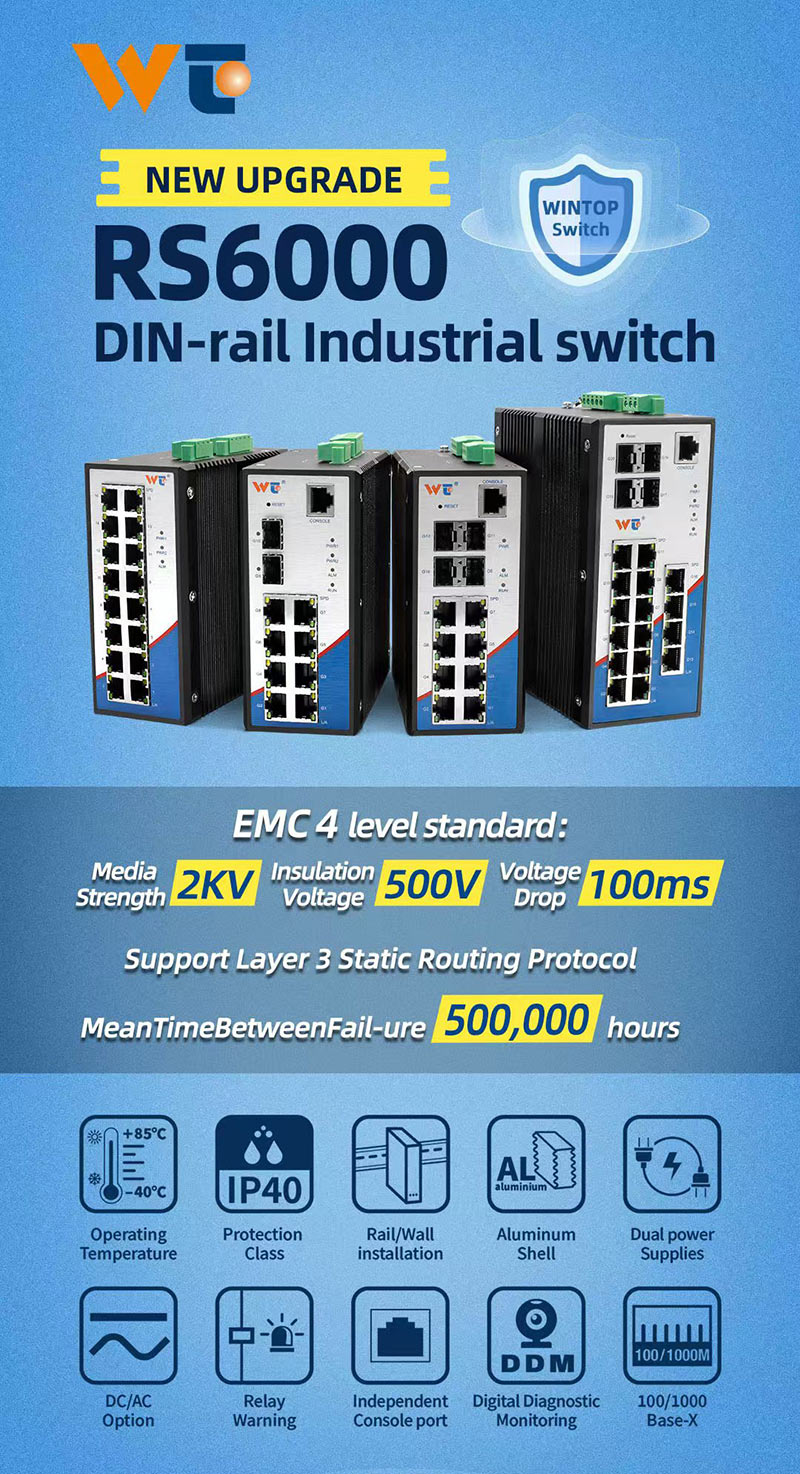Industrial Switches: Empowering Connectivity and Reliability in Shanghai
In the bustling industrial landscape of Shanghai, where precision, reliability, and efficiency are paramount, industrial switches play a pivotal role in enabling seamless connectivity and robust network infrastructures. These sophisticated devices serve as the backbone of modern industrial automation, facilitating data transmission, network management, and operational control with unparalleled reliability.
Understanding Industrial Switches
Industrial switches are specialized networking devices designed to operate in harsh environments characterized by extreme temperatures, humidity, dust, and vibration. Unlike their commercial counterparts, these switches are engineered to withstand demanding conditions without compromising performance. They form the core components of Industrial Ethernet networks, ensuring continuous communication between machines, sensors, actuators, and control systems.
Key Features and Benefits
- Rugged Durability: Industrial switches are built to endure harsh industrial environments, featuring ruggedized casings that protect against dust, moisture ingress, and electromagnetic interference (EMI). This durability ensures uninterrupted operation even in challenging conditions prevalent in Shanghai's manufacturing facilities.
- Enhanced Reliability: Reliability is paramount in industrial settings where downtime can lead to significant financial losses. Industrial switches are equipped with redundant power inputs, fault-tolerant protocols such as Rapid Spanning Tree Protocol (RSTP), and Quality of Service (QoS) mechanisms to prioritize critical data transmission. These features minimize network disruptions and maintain operational continuity.
- Scalability and Flexibility: As industrial operations expand, so does the need for scalable network infrastructure. Industrial switches offer modular designs and support for multiple Ethernet ports, allowing seamless integration into existing networks and accommodating future expansions without requiring extensive overhauls.
- Advanced Management Capabilities: Centralized management is essential for optimizing network performance and troubleshooting potential issues promptly. Industrial switches often come equipped with advanced management features such as SNMP (Simple Network Management Protocol), VLAN (Virtual Local Area Network) support, and diagnostic tools for proactive network monitoring and maintenance.
- Security and Compliance: Protecting sensitive industrial data from unauthorized access is critical. Industrial switches incorporate robust security protocols such as IEEE 802.1X authentication, Access Control Lists (ACLs), and port security mechanisms to safeguard against cyber threats and ensure compliance with industry regulations.
Application in Shanghai's Industrial Sector
In Shanghai, a global hub for manufacturing and industrial innovation, the deployment of industrial switches spans diverse sectors including automotive, electronics, pharmaceuticals, and logistics. These switches facilitate real-time monitoring, process automation, and predictive maintenance, enhancing operational efficiency and enabling seamless integration of Industrial Internet of Things (IIoT) technologies.
Conclusion
Industrial switches represent the technological backbone that drives Shanghai's industrial evolution, empowering enterprises with reliable, scalable, and secure networking solutions. As industries embrace digital transformation and Industry 4.0 initiatives, the role of industrial switches in enabling smart manufacturing and operational excellence becomes increasingly indispensable. With their robust design, advanced features, and unwavering reliability, industrial switches continue to shape the future of industrial connectivity in Shanghai and beyond.
In essence, investing in high-quality industrial switches not only ensures operational continuity but also positions enterprises at the forefront of innovation in Shanghai's dynamic industrial landscape.
